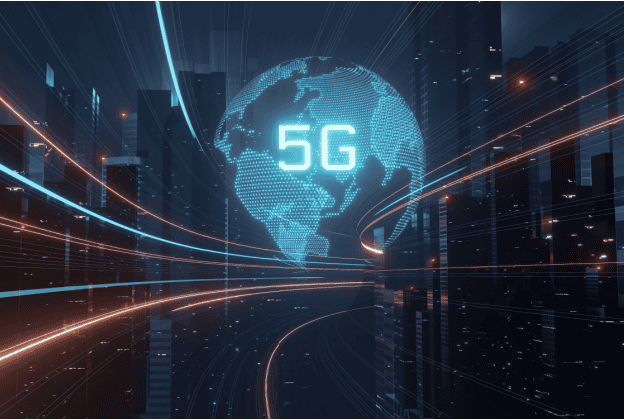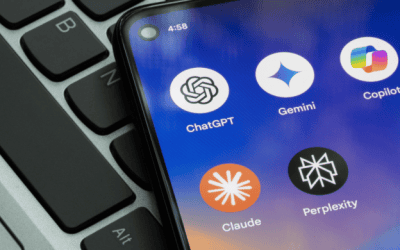The rollout of 5G technology is revolutionizing the telecommunications landscape, offering unprecedented data speed and connectivity for users and businesses alike. However, with these advancements, new challenges and opportunities arise in cybersecurity. As 5G networks become the backbone of modern communication, understanding its impact on cybersecurity is crucial for organizations to safeguard their digital assets effectively.
5G is the fifth generation of mobile network technology, succeeding 4G. It is designed to provide faster data speeds, reduced latency, and more reliable connections on mobile devices and other new technologies, such as smart devices and autonomous vehicles.
New Cybersecurity Challenges with 5G
The deployment of 5G networks introduces several specific cybersecurity risks:
- Increased Attack Surface: The widespread adoption of 5G increases the number of connected devices and the data they generate, significantly expanding the attack surface. This makes networks more vulnerable to attacks such as Denial of Service (DoS) and other threats aimed at disrupting service. Every additional device on a 5G network potentially serves as an entry point for cyber threats, emphasizing the need for robust cybersecurity solutions.
- Enhanced Data Speeds and Volume: The enhanced speeds and greater volume of data transfer capabilities of 5G networks also mean that cyber-attacks can occur at unprecedented speeds, potentially overwhelming traditional security protocols. As noted by experts at the National Cybersecurity Center of Excellence (NCCoE), cybersecurity frameworks need to evolve to handle these increased speeds and data volumes effectively.
- Supply Chain Vulnerabilities: 5G networks rely heavily on a diverse supply chain, which can introduce risks if any components are compromised.
- Advanced Threat Vectors: 5G’s ability to support higher data rates and more connected devices can potentially be exploited to launch more severe distributed denial-of-service (DDoS) attacks.
Opportunities for Enhancing Cybersecurity in the 5G Era
Despite the challenges, 5G also brings numerous opportunities to enhance cybersecurity measures. The inherent features of 5G, such as increased bandwidth, lower latency, and the ability to support many connected devices simultaneously, provide an ideal platform to enhance security measures. Here’s a deeper dive into the positive implications of 5G for cybersecurity:
- Enhanced Data Encryption: 5G networks offer advanced encryption technologies, providing robust security for data in transit.
- Network Slicing: Network slicing is a feature unique to 5G that allows network operators to create multiple virtual networks within a single physical network infrastructure. Each slice can be tailored to meet specific security, performance, and isolation requirements. Critical communications requiring high security can be isolated from less critical traffic, enhancing overall network security and resilience against cyber threats.
- Improved Security Protocols: 5G networks introduce advanced encryption technologies and enhanced privacy features that improve user anonymity and data security. For example, integrating more robust encryption standards in 5G can help protect against eavesdropping and unauthorized data access. This is especially important in an era where data breaches and information leakage are significant concerns.
- Enabling Secure IoT Ecosystems: The massive scalability of 5G makes it ideal for the Internet of Things (IoT), supporting connections for up to a million devices per square kilometer. This scalability, combined with improved speed and reliability, can significantly enhance the security of IoT devices. 5G networks can handle large-scale data from IoT devices more efficiently, allowing for real-time security monitoring and analysis. With 5G, it becomes possible to implement end-to-end security solutions that cover a vast network of interconnected devices, ensuring better protection against potential vulnerabilities.
- Read more about Protecting the Internet of Things (IoT).
- Advancements in AI and Machine Learning: The capabilities of 5G also extend to facilitating the use of artificial intelligence (AI) and machine learning in cybersecurity. The high data throughput and low latency of 5G enable more complex AI-driven security applications that require real-time data processing. These technologies can predict and neutralize threats before they cause harm, adapting to new tactics used by cybercriminals continuously.
Solutions to Enhance 5G Network Security
With the expansion of 5G networks, enhancing security measures to mitigate the associated risks becomes imperative. Organizations can adopt several strategies and solutions to effectively bolster 5G network security. Here are some targeted solutions that can help protect 5G infrastructures and the data they handle:
- Advanced Threat Detection Systems: Utilizing advanced threat detection systems that leverage artificial intelligence and machine learning is crucial in a 5G environment. These systems can quickly analyze vast amounts of data in real-time to detect and respond to anomalies and potential threats. By implementing AI-driven security solutions, organizations can anticipate and mitigate sophisticated cyber-attacks that are too complex for traditional security measures.
- Zero Trust Security Framework: Implementing a Zero-Trust security model, where trust is never assumed and verification is required from everyone trying to access network resources, is particularly effective in a 5G context. This model minimizes the attack surface by limiting access to resources to only those who need it and continuously validating security configurations and software integrity.
- Regular Security Audits and Updates: Regular security audits and ensuring timely security software and firmware updates can protect networks from vulnerabilities. Continuous monitoring and updating security protocols and infrastructure are critical to defend against evolving cyber threats. This also includes patch management strategies to address any security loopholes discovered in the network quickly.
- Proactive Incident Response: A robust incident response plan is vital for quickly addressing security breaches and minimizing damage. In a 5G environment, where attacks can happen rapidly and on a massive scale, the ability to respond swiftly and effectively becomes crucial. Incident response teams should be equipped with tools and protocols to isolate affected segments, analyze the nature of the breach, and restore services swiftly. Regular drills and updates to response plans ensure that the organization stays prepared for evolving cyber threats.
The shift to 5G networks brings transformative potential to industries but also requires reevaluating cybersecurity strategies. By understanding the unique challenges and opportunities presented by 5G, companies can safeguard themselves and leverage these advancements to offer superior cybersecurity services. As we continue to explore the vast possibilities of 5G, staying ahead in cybersecurity practices will be more critical than ever.




